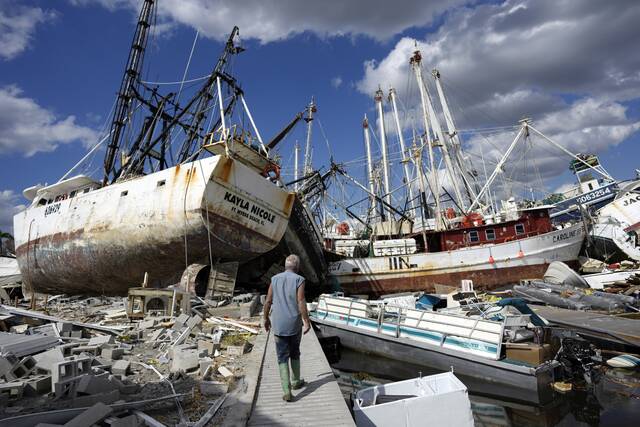More than 1.3% of the adult population in the United States was displaced by natural disasters in the past year, with hurricanes responsible for more than half of the forced relocations, according to first-of-its-kind survey results from the U.S. Census Bureau.
The Household Pulse Survey results said that 3.3 million U.S. adults were displaced by either hurricanes, floods, fires, tornados or other disasters. The two-year-old online survey asked for the first time about displacement from natural disasters in results released Thursday.
Some states were impacted more than others. In Florida, nearly 1 million people, or about 1 in 17 adult residents, were displaced in a state that was ravaged by Hurricanes Ian and Nicole in the fall. More than 409,000 people — or almost 1 in 8 residents — were displaced in Louisiana, which had a comparatively calm hurricane season in 2022 even though residents still were dealing with the devastating impacts from Hurricane Ida the previous year.
Among the states with lowest rates of the adult population being displaced by disasters were Indiana, Maine, North Dakota, Ohio and Oklahoma.
Of the 3.3 million displaced adults, more than a third were out of their homes for less than a week. About 1 in 6 residents never returned to their homes, according to the survey.
The demographic makeup of the displaced didn’t deviate much from the overall race and ethnic background of the U.S. population, but they tended to be poorer. About 22% of the displaced adults reported having a household income of less than $25,000 a year, compared to 17.4% for the overall U.S. population.
The Census Bureau sent invitations to more than 1 million households to participate in the experimental survey and collected a total of 70,685 responses in mid-December.











